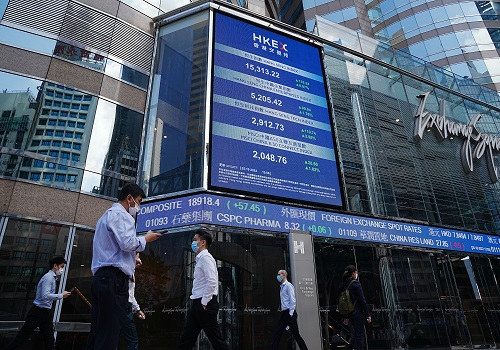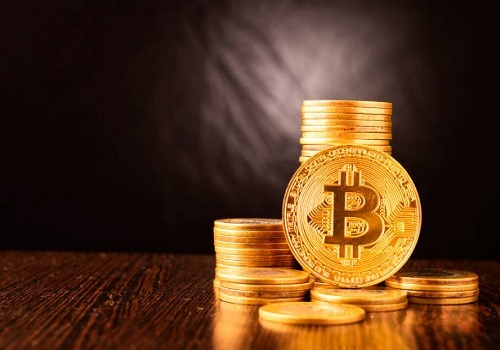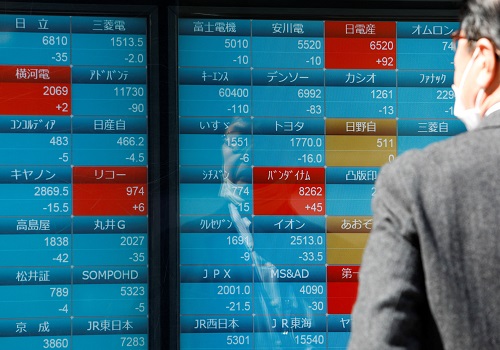Asian stocks rose on U.S. inflation relief, but wary of Fed

Follow us Now on Telegram ! Get daily 10 - 12 important updates on Business, Finance and Investment. Join our Telegram Channel
Asian stocks advanced on Wednesday, bonds were firm and the dollar nursed losses after data showed U.S. consumer prices barely rose in November, stoking hopes inflation has peaked and interest rate increases will slow and eventually stop in 2023.
Nervousness about policymakers' next moves, though, kept the mood in check ahead of a Federal Reserve meeting later in the day and central bank meetings in Britain and Europe on Thursday. Investors are also turning watchful on the global economy, despite China's reopening from tight COVID restrictions.
The U.S. consumer price index increased 0.1% last month, 0.2 percentage points slower than economists expected, and in the 12 months through November, headline CPI climbed 7.1% - its slowest pace in about a year.
European markets were set for a higher open with pan-region Euro Stoxx 50 futures up 0.15%, German DAX futures flat and FTSE futures rising 0.05%. U.S. stock futures, the S&P 500 e-minis, meanwhile, advanced 0.35%.
In Asia, MSCI's broadest index of Asia-Pacific shares outside Japan rose 1%. The index is up 1.2% so far this month.
Japan's Nikkei was up 0.78% while Australian shares advanced 0.67%.
China and Hong Kong stocks also jumped on Wednesday as easing COVID-19 curbs and refocus on economic growth underpinned sentiment.
China's blue-chip CSI 300 Index rose 0.3% while the Hang Seng Index climbed 0.89%.
"If CPI comes off and China fully reopens, that's still not really enough to go gung-ho in Asia markets, because we're facing a scenario where the more developed markets, the major markets are facing a recessionary environment in 2023," said Sat Duhra, Portfolio Manager on Janus Henderson Investors’ Asia ex Japan Equity Team.
"There will be some upside from China reopening, but I think it's not enough to offset the negatives."
Overnight Wall Street surged, before paring gains to leave the S&P 500 up 0.7% at the close. The index was up nearly 2.8% at one stage, while the Nasdaq rose as much as 3.8% before closing 1% higher.
The dollar, which is falling from 20-year highs as U.S. interest rate expectations retreat, dropped broadly and sharply, while bonds rallied.
The yield on benchmark 10-year U.S. Treasuries fell 11 basis points overnight and was steady at 3.4956% in afternoon Asia trade. Two-year yields, which track short-term interest rate expectations, touched 4.2053% compared with a U.S. close of 4.229%. [US/]
The U.S. dollar fell 1.5% against the yen after the inflation data and was steady at 135.37 yen in Asia. The U.S. dollar index, which tracks the greenback against a basket of currencies of other major trading partners, fell to a six-month low of 103.57, before steadying at 104.04. It is down more than 9% from a two-decade high made in September. [FRX/]
FED AHEAD
Futures pricing shows markets expect the Fed will slow the pace of hikes, but still raise its Funds rate target range by 50 bps to between 4.25% and 4.5% later on Thursday.
Much of the focus then falls on the "dot plot" chart of committee members projections about future rate movements, and the tone chairman Jerome Powell strikes in his press conference.
"There are now clear signs that inflation is softening, but it is still at elevated level," said Tareck Horchani, head of dealing, Prime Brokerage, at Maybank Securities in Singapore.
"The market wants to know if the Fed will change their stance on the dot plot," he said, with the median projection in September being for a peak in the Fed funds rate of around 4.6% next year.
Oil was carried 1% higher with the broader mood, before trimming gains a bit in Asia with Brent futures last at $80.35 a barrel and U.S. crude at $75.12 a barrel.
Bitcoin got a bounce overnight, but was unable to hold onto gains above $18,000.
Cryptocurrency markets have been unmoved, but transfixed, by the arrest of FTX founder Sam Bankman-Fried, who was accused by U.S. prosecutors on Tuesday of misappropriating billions of dollars in customer funds from the cryptocurrency exchange.












 320-x-100_uti_gold.jpg" alt="Advertisement">
320-x-100_uti_gold.jpg" alt="Advertisement">












